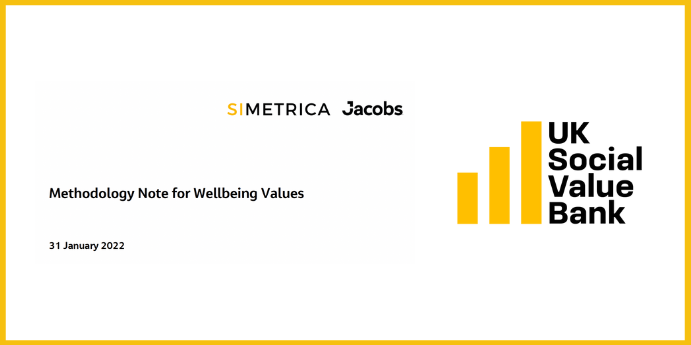Health plays a central role in shaping individual well-being and the quality of life for communities. Recognising this, HACT’s UK Social Value Bank (UKSVB) offers a comprehensive framework to measure the value of health-related changes in people’s lives.
By capturing the financial and social impacts of improvements in mental and physical health, reduced alcohol consumption, smoking cessation, and other health-related shifts, the UKSVB enables organisations to quantify the benefits of their interventions.
Understanding Health Outcomes in the UK Social Value Bank
The UK Social Value Bank contains 88 social outcomes, each assigned a monetary value. Six of these are directly related to health, covering areas such as mental health, physical health, alcohol reduction, smoking cessation, improved diet, and family connections. These outcomes offer a detailed way to understand the social value generated by health improvements, both in terms of personal well-being and societal savings.
Key Health Outcomes
The health outcomes deliver some of the highest values across the whole of the UK Social Value Bank. Here are some of the key outcomes:
- Improved confidence. Confidence plays a crucial role in well-being. This outcome reflects the value of an individual moving from feeling a lack of confidence to regaining it, which has substantial impacts on both their personal and professional life.
- Relief from depression or anxiety. Mental health improvements are some of the most valuable outcomes across the whole of the bank with significant benefits for both the individual and society, particularly in terms of healthcare costs and increased productivity.
- Good overall health. This outcome captures the transformation when an individual’s self-reported health shifts from poor or fair to good or excellent. This improvement has ripple effects on overall well-being, reducing healthcare needs and improving life satisfaction.
- Smoking Cessation or Reducing Alcohol Intake. Quitting smoking or reducing harmful alcohol consumption brings both immediate and long-term health benefits alongside savings to the healthcare system. If you know these issues are prevalent within a community, the social value delivered would be significant.
- Improved diet. A healthier diet, specifically increasing the intake of fruits and vegetables, directly improves both physical and subjective well-being.
How the Values Are Calculated
You’ll notice these health outcomes are more often subjective health and activity rather than clinical diagnosis, therefore the evidence of health benefits is collected via surveys from the service users. For example, a survey will be asked about a person’s confidence at the beginning and at the end of a project to determine the improvement.
The methodology behind these values is robust and evidence-based. It relies on:
- Wellbeing Valuation: A method that assigns a monetary value to changes in well-being. This allows the UKSVB to provide a financial equivalent for health improvements, making it easier to measure their impact.
- Health Top-Up Values: For many health outcomes, improvements in well-being cannot be separated from improvements in health. The UKSVB accounts for this by assigning an additional health top-up value, ensuring that all aspects of a health intervention are captured.
- Exchequer Savings: The indirect benefits to society, such as reductions in healthcare costs and other public expenditures, are also considered. For example, smoking cessation leads to significant savings for the NHS due to reduced need for healthcare interventions related to smoking-related illnesses
A note on deadweight
Across the whole of the UK Social Value Bank, including the health outcomes it is understandable that these things may have happened without any intervention. Therefore, to ensure meaningful calculations a deadweight is incorporated into all social value calculations to adjust the value for any change that could occur naturally.
For example, if a project helps individuals quit smoking, deadweight measures the percentage of individuals who might have quit smoking on their own without the program and so the social value is reduced by that percentage.
This calculation is all done for you, so you can measure your social value more accurately avoiding inflated claims of impact.
Why These Health Outcomes Matter
For housing associations, charities, healthcare providers and community organisations, measuring the impact of health interventions is essential. The UKSVB provides a valuable tool to quantify the effectiveness of health programs, demonstrating their value not just in human terms but also in financial returns. Most importantly, this measurement uses the real-life experiences of those benefitting from interventions to determine the value that is delivered. This helps organisations secure funding, demonstrate accountability, and refine their interventions to maximise impact.
How can you ensure your initiatives deliver meaningful health-related impact?
Get in touch with HACT’s Social Value team to learn more about how the UK Social Value Bank can help you measure and maximise your impact. Our experts can guide you in understanding how these outcomes are evidenced and applied, ensuring that your projects generate lasting benefits for individuals and communities.
Book a chat with the team and find out how.





